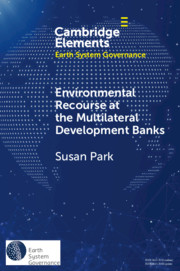Since the 1990s, the funding of multilateral development assistance has rapidly transformed. Donors increasingly constrain the discretion of international development organizations (IDOs) through earmarked funding, which limits the purposes for which a donor's funds can be used. The consequences of this development for IDOs’ operational performance are insufficiently understood. We hypothesize that increases in administrative burdens due to earmarked funding reduce the performance of IDO projects. The additional reporting required of IDOs by earmarked funds, while designed to enhance accountability, ultimately increases IDOs’ supervision costs and weakens their performance. We first test these hypotheses with data on project costs and performance of World Bank projects using both ordinary-least-squares and instrumental-variable analyses. We then probe the generalizability of those findings to other organizations by extending our analysis to four other IDOs: the African Development Bank (AfDB), Asian Development Bank (ADB), Caribbean Development Bank (CDB), and International Fund for Agricultural Development (IFAD). Using data on the performance of 7,571 projects approved between 1990 and 2020, we find that earmarked funding undermines both cost-effectiveness and project performance across IDOs. Donors seeking value for money may consider allocating more money to core funds rather than to earmarked funds.


